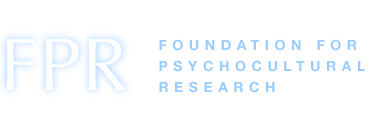Inaugural Workshop on Linking the Neuro- and Social Sciences
Ojai Valley Inn & Spa
Ojai, California
June 29–July 1, 2001
The FPR held its inaugural workshop in 2001 (June 29–July 1) in Ojai, California. The thirty-two participants included anthropologists, psychologists, psychiatrists, linguists, neurobiologists, and historians. The purpose of the meeting was to create a new area of inquiry integrating the neuro- and social sciences. The three-day meeting began with an introductory plenary session in which participants described their research and interdisciplinary interests followed by a mix of breakout and plenary sessions. The workshop ended with a plenary session that addressed emerging issues and potential directions for interdisciplinary research.
Breakout Session Topics:
- Culture and Development
- Methodological Issues in Culture–Neuroscience Integration
- Culture, Trauma, and Neurobiology/Topical 3-yr Focus of The FPR
- Cultural Perspectives on Psychiatric Theory and Practice
- Cognition, Emotion, Culture and the Brain
- Philosophical Issues Involved in Integrating Cultural and Neuroscientific Levels of Analysis
By the end of the inaugural workshop, workshop participants agreed on the importance of identifying specific issues of social or clinical concern – for example, psychological trauma – that involve a wide range of phenomena with clearly recognizable relevance across disciplines. These issues could serve as a mediating focus for future interdisciplinary collaborations involving multiple levels of analysis. The group also agreed about the importance of nurturing and sustaining a heterogeneous group of researchers who are able to inform and influence each other’s research.
Participants identified a number of questions for further investigation:
- Cultural knowledge and understanding are focused on meaning, contingency, and socially shared learning. What are some of the brain mechanisms connecting these areas?
- How do researchers working in different areas and specialized sub-disciplines reconcile the different vocabularies, units of analysis, scales of inquiry, methods of measurement, and constraints of their models?
- How meaningful is a correlation between biological markers and cultural phenomena?
- What are some of the defining features of the cultures of psychiatry, anthropology, neuroscience, the pharmaceutical industry, and the media that report on scientific advances?
- What is the effectiveness of cultural training for practitioners?
- How does culture shape the concordance between behavioral expressions of emotions and physiological evidence?
- What are the long-term impacts of different cultural methods of childrearing on the brain?
- How does culture shape the timing and content of the developmental process?
List of Participants
Mark Barad (UCLA)
Joel Braslow (UCLA)
Carole H. Browner (UCLA, FPR)
Roy G. D’Andrade (UC San Diego)
Robert B. Edgerton (UCLA)
Alan Page Fiske (UCLA)
Linda C. Garro (UCLA)
Mary-Jo DelVecchio Good (Harvard University)
Patricia M. Greenfield (UCLA)
Peter J. Guarnaccia (Rutgers University)
Douglas Hollan (UCLA, FPR)
Allen W. Johnson (UCLA)
Marjorie Kagawa-Singer (UCLA, FPR)
Marvin Karno (UCLA Emeritus, FPR)
J. David Kinzie (Oregon Health & Science University)
Laurence Kirmayer (McGill University)
Robert B. Lemelson (UCLA, FPR)
Keh-Ming Lin (UCLA Emeritus)
Steven R. Lopez (USC, FPR)
Mario G. Maldonado (Runajambi)
Caitlin Mullin
Deena Newman (University College London)
Beate Ritz (UCLA)
Arthur J. Rubel (UC Irvine Emeritus)
Allan N. Schore
John H. Schumann (UCLA)
Daniel J. Siegel (Mindsight Institute)
Charles Stewart (University College London)
Allan J. Tobin (UCLA Emeritus, CHDI Management)
Thomas Weisner (UCLA)
Peter C. Whybrow (UCLA)
James Wilce (Northern Arizona University)
